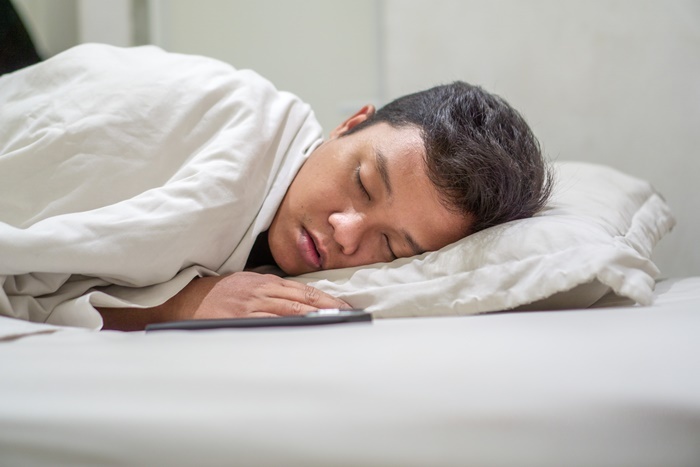While sleep is often associated with relaxation, it plays a much more essential role in overall health. Numerous studies have shown that sleep quality is closely tied to environmental conditions, including what you wear to bed, or don’t.
Dr. David Rosen, a well-known American sleep specialist, has recently drawn attention for advocating the health benefits of sleeping without clothing. According to Rosen, sleeping naked promotes better sleep and may support reproductive health and emotional well-being. As part of the body’s natural circadian rhythm, core temperature drops at night, signaling sleep onset.

How body temperature affects sleep
Melatonin, a hormone that helps regulate sleep, is released in response to decreased body temperature. However, wearing tight underwear or heavy pajamas can interfere with this process by trapping heat and disrupting the body’s ability to cool effectively, potentially reducing sleep quality.
Evidence from both clinical research and observational studies suggests that people who can better regulate body temperature tend to enter deeper stages of sleep more easily, contributing to overall health and recovery.
Reproductive health implications
Another significant benefit of sleeping without clothing is related to reproductive health. Tight or non-breathable clothing can trap heat and moisture around the genital area, particularly during sleep. In men, this can raise the temperature of the testicles, which are most efficient at slightly below body temperature. Prolonged exposure to elevated temperatures during sleep may negatively affect sperm production.
A lack of airflow and increased warmth can raise the risk of bacterial infections or vaginitis in women. Sleeping without restrictive clothing allows for better ventilation and may help reduce these risks.

Emotional and relational benefits
Sleeping naked can also enhance emotional well-being. Skin-to-skin contact during sleep has been shown to increase oxytocin levels. Known as the “bonding hormone,” oxytocin promotes feelings of trust, reduces stress, and fosters emotional closeness. As a result, couples who sleep together without clothes may experience stronger emotional connections and improved relationship satisfaction.
However, individual preferences and health conditions should be considered. People with sensitive skin, difficulties regulating body temperature, or who are prone to colds may find sleeping without clothes uncomfortable.
Creating the right environment
To safely enjoy the potential benefits of sleeping naked, experts recommend maintaining a bedroom temperature between 18 and 22 degrees Celsius (64–72°F). A light blanket or shared comforter can help regulate body warmth throughout the night.
Ultimately, whether or not to sleep naked is a personal choice. For individuals who find pajamas too warm or restrictive, it may be worthwhile to reevaluate bedtime habits. A sleep environment supporting comfort and physiological needs is key to achieving restful, restorative sleep.









Most Commented